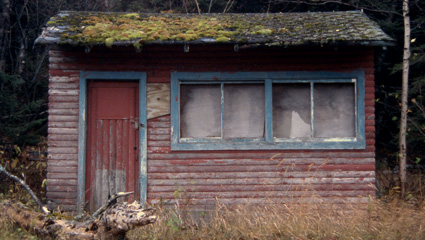I appreciate the literary critic James Wood’s recent op-ed piece (The New York Times, 24 January 2010), in which he reflects on the theological claims Christians offer to make sense of natural disasters.
The article directs our attention to the problematic nature of these claims, rehearsing arguments that Wood has made in more detail (and more strenuously) in other settings, though it stops short of giving real consideration to alternative theological positions that Christians might adopt.
Wood notes that Christianity’s public leaders (not just Pat Robertson, but people like me and most of you reading this), in our attempts to grapple with how a just and loving God can coexist with earthquakes that produce six-figure body counts, tend to revert to “appalling” assertions about God. Often without meaning to do so, we implicitly blame victims or cling to a self-centered fatalism. Theodicy seems able to generate only temporary consolation, never satisfying answers.
A 1000-word op-ed piece doesn’t allow for much nuance. So, as Wood sketches the dichotomy that he hears when people grasp at theodicy–a choice between either an interventionist and disproportionately punitive God or an absent and capricious God–the professional Bible scholar in me wants to challenge his overdrawn assumptions about the Bible’s support for the former. Obviously the Bible conveys other understandings of the Creator than a Deity who wields the forces of nature to get a point across. Moreover, it’s a specious interpretation of Scripture that mistakes particular biblical events or interventions for the usual mode of God’s activity. The Bible knows the difference between the extraordinary and the ordinary. Also, the literary diversity between its covers encourages theological debate about what Wood seems to take for granted.
Both parts of Wood’s dichotomy operate under the presupposition that God, perhaps by definition, is totally separated from or beyond the activities of creation and not somehow enmeshed in it or affected by it. Maybe the lessons for us believers to learn, then, are that theodicy forces us to admit that such a presupposition can leave people empty, and that the presupposition does not totally square with the God we encounter in Jesus Christ.
Maybe theodicy’s greatest contributions come from its failures. Its unsatisfying answers might have two salutary results: it can lead us to keep room for mystery, and it can compel us to look closer for signs of God when creation shows its terrible force.
As for the idea of mystery, Wood seems to me actually not too far from the mark when he implies that “luck” might be a better category for survivors to use when they make sense of the destruction in Haiti. True, the idea of luck alone builds shaky theological foundations and breeds flippancy. But the notion of blind luck, with its ways of making us abandon attempts to master it, is not too far from the idea of mystery. Keeping room for mystery in our theology, mystery accompanied by the full and humble conviction that God is gracious, can provide faithful space for us to dwell. Accepting mystery doesn’t mean that we stop caring or cease being dependent upon God; I think it can do the opposite. It also means that we don’t rush to try to explain God. It gives us freedom to relinquish the need we feel to answer for God. Doing so is not theology’s business in the first place, as far as I can tell.
As for looking for God closer to the action, probably the most instructive part of the op-ed is Wood’s honest statement that, in the aftermath of a catastrophe, “no invocation of God beyond a desperate appeal for help makes much theological sense.”
Maybe in situations like these, the most trustworthy evidence of God’s presence is not in the forces that trigger earthquakes, but in what follows them–even amid the suffering, to be sure, but also in the acts of mercy, caregiving, and hope that underscore our common humanity and awful vulnerability. After all, it’s a humanity and vulnerability that God knows very well.

